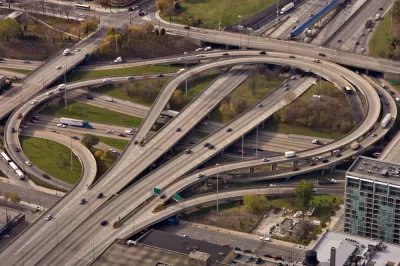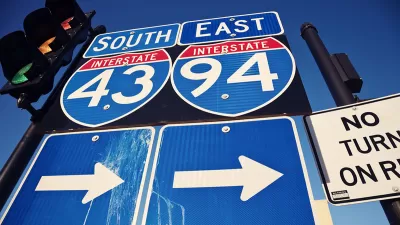A coalition of environmentalists, civil rights activists, and other community interests teamed up to successfully oppose a Milwaukee highway widening proposal. In an interview, one of the leading lawyers discusses his work.

Throughout the past year, a coalition of activists organized against a widening proposal for the I-94 through Milwaukee. The state recently abandoned the project. Here, Angie Schmitt interviews Dennis Grzezinski, an environmental attorney who led the charge. "In his most recent win, representing the Milwaukee chapters of the NAACP and the Sierra Club, Grzezinski took Wisconsin DOT to federal court over a $1.1 billion urban highway widening project."
According to Grzezinski, the money that's been poured into highway widening can exacerbate social problems like segregation by race and income. Billions of dollars for more highways, he says, allow "richer people to flee in the evening — concentrating poverty and social problems."
Grzezinski discusses how interest groups can form common cause against projects they oppose, bettering their chances in court. "It's really, really important to be involved as early in the project as possible, following the initial notice that they're looking at a project. It's really important to weigh in with comments. I found it really important to develop coalitions of organizations — to get the whole range of interested community players involved, in attending public hearings and public minutes."
FULL STORY: Meet the Lawyer Taking on Wisconsin’s Highway Lobby — And Winning

Maui's Vacation Rental Debate Turns Ugly
Verbal attacks, misinformation campaigns and fistfights plague a high-stakes debate to convert thousands of vacation rentals into long-term housing.

Planetizen Federal Action Tracker
A weekly monitor of how Trump’s orders and actions are impacting planners and planning in America.

San Francisco Suspends Traffic Calming Amidst Record Deaths
Citing “a challenging fiscal landscape,” the city will cease the program on the heels of 42 traffic deaths, including 24 pedestrians.

Defunct Pittsburgh Power Plant to Become Residential Tower
A decommissioned steam heat plant will be redeveloped into almost 100 affordable housing units.

Trump Prompts Restructuring of Transportation Research Board in “Unprecedented Overreach”
The TRB has eliminated more than half of its committees including those focused on climate, equity, and cities.

Amtrak Rolls Out New Orleans to Alabama “Mardi Gras” Train
The new service will operate morning and evening departures between Mobile and New Orleans.
Urban Design for Planners 1: Software Tools
This six-course series explores essential urban design concepts using open source software and equips planners with the tools they need to participate fully in the urban design process.
Planning for Universal Design
Learn the tools for implementing Universal Design in planning regulations.
Heyer Gruel & Associates PA
JM Goldson LLC
Custer County Colorado
City of Camden Redevelopment Agency
City of Astoria
Transportation Research & Education Center (TREC) at Portland State University
Jefferson Parish Government
Camden Redevelopment Agency
City of Claremont




























